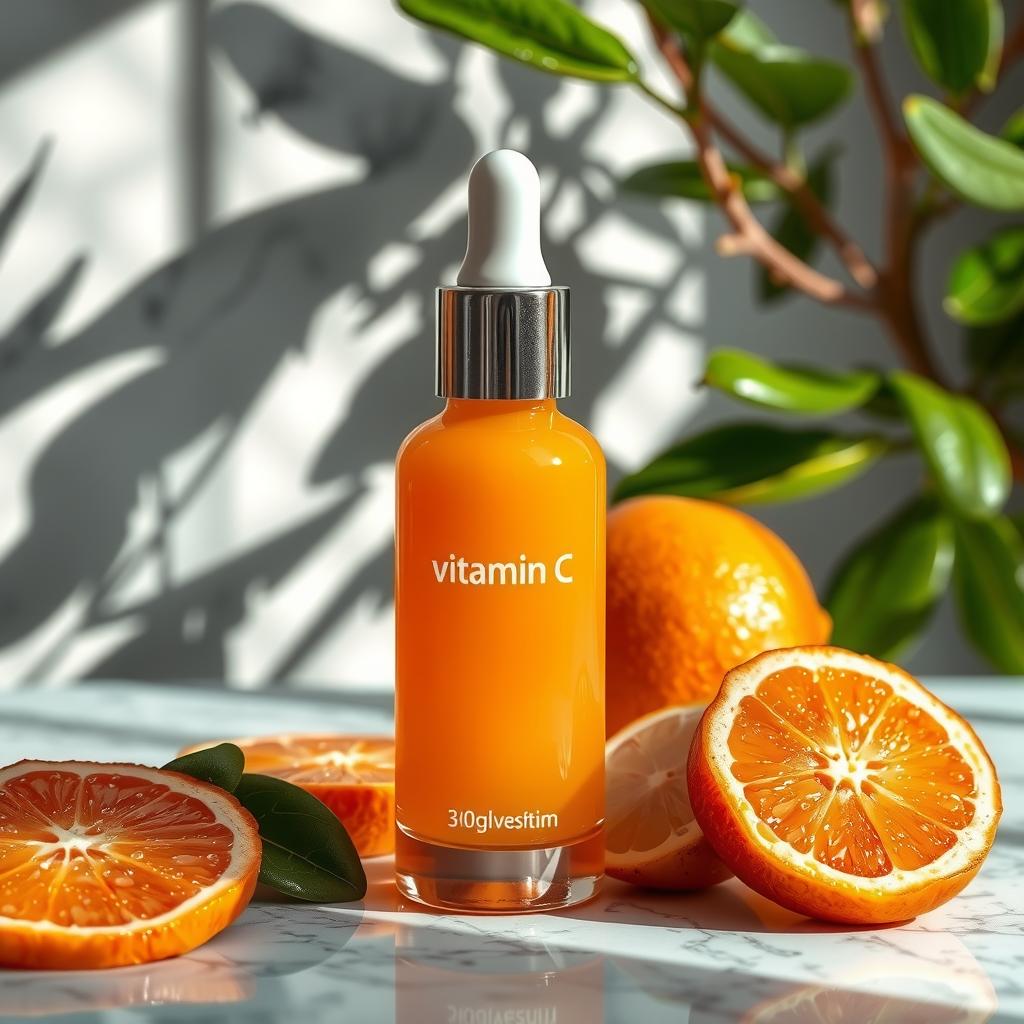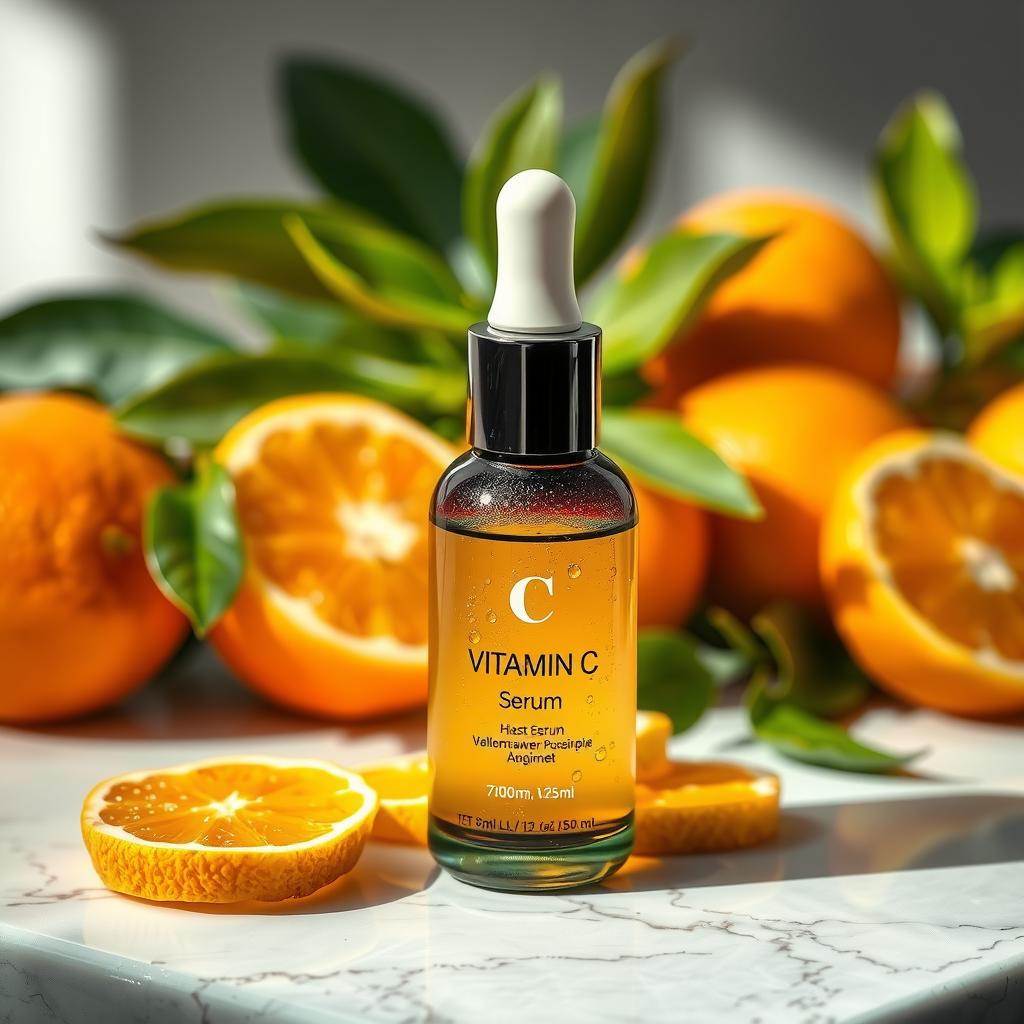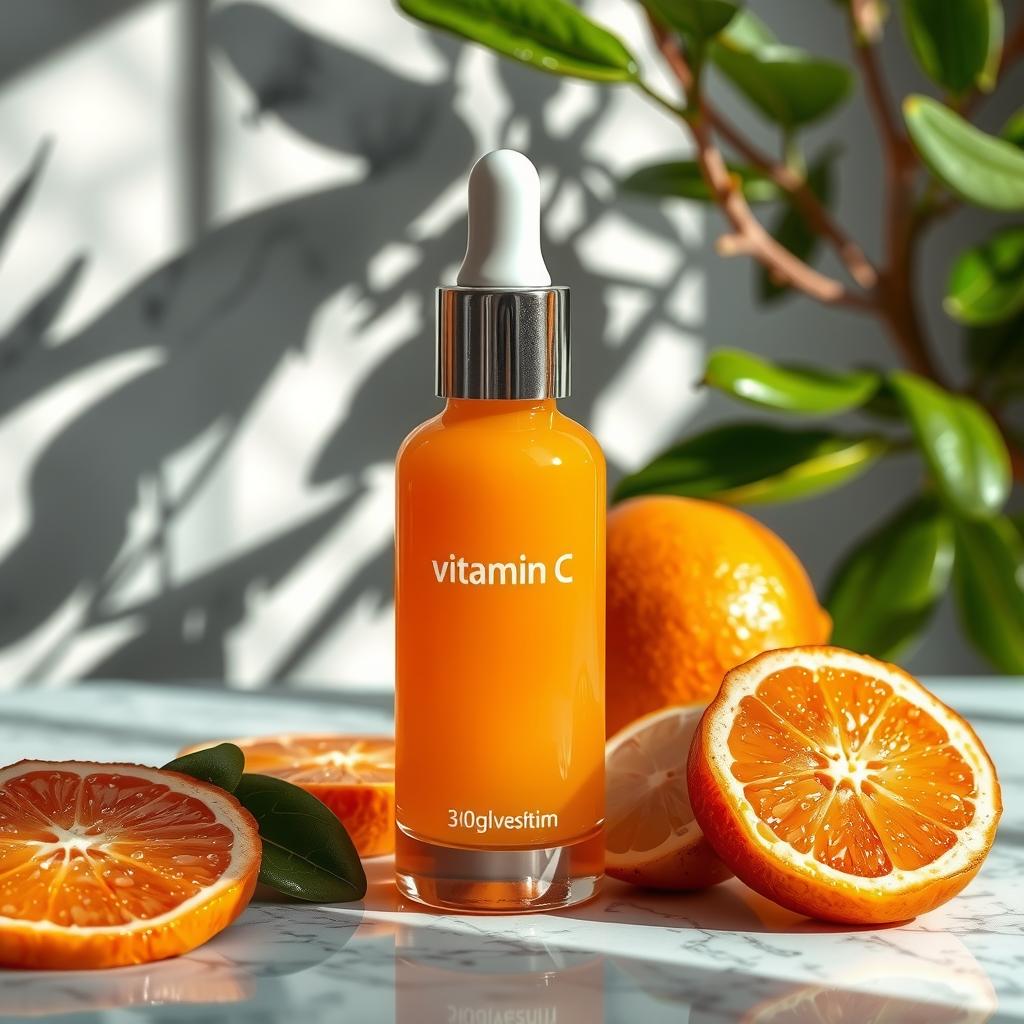Have you ever wondered why your beloved vitamin C serum seems to lose its potency over time, even when stored diligently? This common concern among skincare enthusiasts sheds light on the importance of proper storage techniques for this powerhouse product. As a staple in many anti-aging solutions, vitamin C serums are celebrated for their ability to brighten skin tone and combat signs of aging. However, if not stored correctly, they can quickly succumb to oxidation, rendering them less effective and potentially disappointing.
Understanding how to preserve the integrity of vitamin C serum is crucial for anyone looking to enhance their skincare routine with this essential ingredient. The effectiveness of these serums hinges not only on their formulation but also on how they are kept before use. Inadequate storage can diminish the active ingredients that make these products so beneficial, leading users to question whether the investment was worth it.
This article aims to explore the best practices for storing your vitamin C serum, ensuring you maximize its longevity while reaping all its benefits. From temperature control and appropriate packaging choices to tips on minimizing exposure to light and air—each factor plays a vital role in maintaining product efficacy. By adhering to these guidelines, readers can ensure that their favorite serums remain potent throughout their shelf life.
In delving deeper into this topic, one will discover practical strategies tailored specifically for preventing oxidation in vitamin C serums. These insights will empower individuals not just with knowledge but also actionable steps that integrate seamlessly into any skincare regimen. Whether you're a seasoned user or new to incorporating vitamin-rich formulations into your daily routine, understanding how best to store these products is key.
As readers continue through this post, they'll gain valuable information about optimizing storage conditions that keep your vitamin C serum's potency intact. This comprehensive guide promises an enlightening exploration of preservation methods designed specifically for enhancing product longevity without compromising quality or results. So let's embark on this journey toward optimal skincare practices together!

Key Points:
-
Optimal Storage Environment: Choosing the Right Location
Properly storing vitamin C serum begins with selecting an appropriate environment. The ideal storage solution involves placing the serum in a dark, cool area that is free from direct sunlight and moisture. These conditions help to minimize oxidation, thereby preserving the potency of the active ingredients in the vitamin C serum. By understanding this critical aspect of vitamin C storage, users can significantly enhance product longevity. -
Airtight Containers for Serum Preservation: Enhancing Protection
Utilizing airtight containers or dropper bottles is essential for effective serum preservation. Exposure to air can lead to degradation over time, which diminishes the effectiveness of any skincare product, especially potent formulations like vitamin C serum. Keeping these serums tightly sealed when not in use further aids in preventing oxidation and contamination—two factors that are detrimental to maintaining a robust skincare routine focused on anti-aging solutions. -
Avoiding Contamination Risks: Maintaining Integrity
Minimizing contact between different containers is vital for ensuring that your vitamin C serum remains uncontaminated and retains its full benefits. Transferring serums between multiple containers introduces excess oxygen and potential contaminants that compromise their efficacy. Adhering to best practices ensures that users maximize their investment while enjoying vibrant results from their favorite products within their daily skincare regimen.

The Impact of Storage on Efficacy
Why Proper Storage Matters for Vitamin C Serum
The effectiveness of vitamin C serum is significantly influenced by how it is stored. Factors such as light, temperature, and air exposure can lead to the oxidation of this potent antioxidant, ultimately diminishing its benefits. When improperly stored, vitamin C serums can lose their potency within weeks or even days. Oxidation not only alters the color of the serum—often turning it a darker shade—but also reduces its ability to combat free radicals and promote collagen production in the skin. For skincare enthusiasts who invest in high-quality products promising anti-aging solutions, understanding these preservation methods becomes crucial for maintaining product longevity. To optimize results from any vitamin C serum, it is recommended that users store it in a cool, dark place—ideally in an opaque or amber bottle that minimizes light exposure—and ensure that they tightly seal the container after each use.
Best Practices for Storing Vitamin C Serum
Keeping Your Skincare Routine Effective
To maximize the benefits derived from vitamin C serums, following best practices for storage is essential. First and foremost, always check if your product comes with specific storage instructions provided by manufacturers; many will recommend refrigeration to prolong efficacy further. Moreover, consumers should be mindful not just about where but how often they open their products; frequent exposure to air can accelerate oxidation processes drastically. Those committed to a daily skincare routine incorporating vitamin-based treatments must prioritize proper handling techniques as well—using clean hands or tools when dispensing serum helps prevent contamination and maintains optimal purity levels within each drop of this vibrant liquid gold.
Understanding why improper storage diminishes effectiveness emphasizes a broader point: every aspect of your skincare regimen matters greatly towards achieving desired outcomes like radiant skin and reduced signs of aging. Adopting thoughtful approaches towards preserving items such as vitamin C serum ensures users receive maximum value while safeguarding investments made into premium beauty formulations designed specifically for enhancing complexion health over time.
Optimal Storage Locations for Vitamin C Serum
Ensure Maximum Potency Through Smart Placement
When it comes to maintaining the efficacy of vitamin C serum, the location in which it is stored plays a crucial role. Ideally, this potent skincare product should be kept in a cool, dark place away from direct sunlight and humidity. High temperatures and exposure to UV light can lead to rapid oxidation of vitamin C, diminishing its effectiveness over time. A medicine cabinet or drawer that remains consistently cool is typically an excellent choice for storage, as these areas shield the serum from temperature fluctuations and light exposure. Additionally, some users find success by storing their vitamin C serum in the refrigerator; however, care must be taken to ensure that it does not freeze. Cold storage can prolong the longevity of this anti-aging solution by slowing down oxidative processes significantly.
It’s also worth noting that keeping the bottle tightly sealed when not in use prevents air from entering and further oxidizing the product inside. Choosing products packaged in opaque or amber glass containers can provide additional protection against harmful light rays while minimizing exposure to air every time you open them for application during your skincare routine. Remembering these best practices will help maintain both potency and freshness—two essential factors for a successful vitamin C serum experience.
Minimizing Oxidation with Proper Handling
Techniques That Preserve Your Serum's Integrity
Handling methods are just as important as physical storage locations when discussing best practices for preserving vitamin C serums at home. One critical aspect is ensuring hands are clean before dispensing any product; introducing contaminants could compromise its quality over time. For those who frequently use their serums directly from dropper bottles, it's advisable to avoid letting droppers touch skin surfaces—not only does this prevent bacteria transfer but also minimizes potential contamination risks associated with repeated use.
Moreover, utilizing an appropriate amount during each application can make a significant difference too; using more than necessary doesn’t enhance results but rather wastes valuable product—especially one as precious as vitamin C. A small pea-sized amount usually suffices for optimal absorption into skin layers without excess wastefulness after sealing again promptly post-application ensures oxygen levels remain low inside bottles afterwards contributing substantially towards improved longevity overall.
By employing careful handling techniques along with proper environmental considerations outlined earlier readers will undoubtedly create conditions favorable enough which allow them benefit fully from all advantages provided via effective utilization of their chosen serum. With consistent attention paid throughout both aspects discussed here today individuals should see marked improvements across various factors including potency retention alongside longer-lasting impact each time they incorporate such powerhouse solutions within daily routines!
Common Mistakes in Vitamin C Storage: What to Avoid
Understanding the Pitfalls of Vitamin C Serum Preservation
When it comes to maximizing the efficacy of vitamin C serum, understanding proper storage techniques is crucial. One common error users make involves exposing their serums to light and air, both of which can lead to oxidation. Many individuals store their products on bathroom counters or near windows, inadvertently allowing UV rays and humidity to degrade the active ingredients over time. To prevent this, it's advisable for users to keep their vitamin C serum in a cool, dark place like a drawer or cabinet. Furthermore, opting for opaque packaging can provide an extra layer of protection against light exposure.
The Role of Temperature in Product Longevity
Temperature fluctuations are another critical factor that affects the longevity and stability of vitamin C serums. Users may mistakenly leave their products in areas with extreme heat—such as near radiators or outside during summer months—which can accelerate degradation. For optimal preservation, maintaining a consistent temperature below 25°C (77°F) is recommended. Additionally, refrigerating certain formulations might enhance stability; however, consulting product guidelines before doing so ensures compatibility with specific formulas.
Importance of Proper Closure Techniques
Another frequent oversight is improper sealing after use. Leaving lids loosely closed allows air into the bottle—a primary cause of oxidation that diminishes effectiveness quickly. Users should ensure that caps are tightly secured immediately after application and consider using pumps instead of droppers where possible; these mechanisms limit exposure by minimizing contact between the serum and external elements each time it’s dispensed.
Frequent Misapplication During Skincare Routines
Lastly, many people overlook how they apply vitamin C serums within their skincare routines. Applying them over wet skin or layering too many other products immediately afterward can hinder absorption and efficacy due to dilution effects from moisture or heavy occlusives present in other formulations used simultaneously. It’s best practice for users to apply vitamin C serum onto clean dry skin followed by appropriate moisturizers once fully absorbed—this method enhances penetration while ensuring maximum benefits from anti-aging solutions inherent in vitamin C formulations.
Emphasizing correct handling practices will not only prolong product longevity but also optimize results seen through regular use within daily skincare regimens—all contributing significantly towards achieving radiant skin free from premature aging signs typically associated with oxidative stress.
Frequently Asked Questions:
Q: How should I store my vitamin C serum to maintain its potency?
A: To ensure the effectiveness of your vitamin C serum, it is crucial to store it in a dark, cool environment away from direct sunlight and moisture. Utilizing airtight containers or dropper bottles can further help minimize air exposure, thereby enhancing serum preservation and prolonging product longevity.
Q: Why does exposure to light and air affect my vitamin C serum?
A: Exposure to light and air is one of the primary factors that lead to oxidation of your vitamin C serum. This process can diminish its antioxidant properties, making it less effective as part of your skincare routine. By practicing effective oxidation prevention, you can maximize the benefits of this powerful anti-aging solution.
Q: Can transferring my vitamin C serum between containers harm its effectiveness?
A: Yes, transferring your vitamin C serum between multiple containers can introduce contaminants or excess oxygen, which may compromise its integrity. It’s advisable to keep the product tightly sealed when not in use and avoid unnecessary handling for optimal serum preservation. Following these best practices will significantly enhance the overall efficacy of your skincare regimen.

